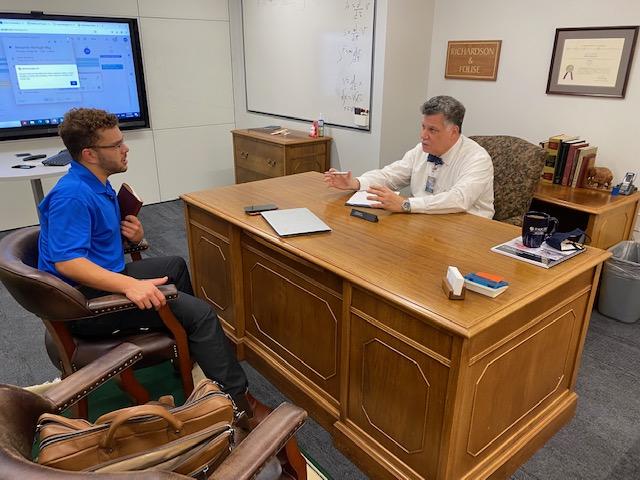When a group of Case Western Reserve University students representing “Team LEAF” won first place in the ideaLabs competition for best new venture ideas in April 2021, they turned to the Intellectual Property Venture Clinic (IPVC) at Case Western Reserve University School of Law with questions about next steps for their invention—a software to help commercial solar panel installation engineers optimize the efficacy of their products. The student inventors were seeking protection for their intellectual property.
It’s all in a day’s work for students in the IPVC—an Intellectual property and business venture program where students, working under faculty supervision, provide free legal and business expertise to student inventors and local startup companies as they enter the market.
“LEAF has been very fortunate to receive legal services from the IPVC,” said Cooper Reif, a Team LEAF member. “Our legal interns, Alexandra and Xiaoqing, have been instrumental in working to legally protect our intellectual property. Being a company of current and former CWRU students, the IPVC appeared as a great fit since they understand the university ecosystem very well.”
The IPVC maintains a walk-in Help Desk at Think[box] on the sixth floor of the Richey-Mixon building, staffed three times a week by students and Michael Folise, Distinguished Practitioner in Residence, IP Venture Clinic. The clinic also helps clients via Zoom when in-person meetings are not possible—which proved especially helpful during the campus closure necessitated by Covid-19.
The IPVC is one of nine clinics under the umbrella of the Milton and Charlotte Kramer Law Clinic and is staffed by a faculty supervisor, third-year law students certified as Legal Interns by the Supreme Court of Ohio, and students in the School of Law’s Master’s in Patent Practice program, which prepares students for careers as patent agents.
The Clinic’s services are available to students, faculty, staff, alumni and the community. It can help bridge the gap between inventors who have an idea but few resources and investors looking for opportunities.
While consultations are available to all, clients of the clinic have to meet certain requirements including income and an Ohio address. The Clinic also takes into account the students’ capacity to take on projects and the particular facts and circumstances presented.
Through the clinic, students have gained real-world experience working with a diverse portfolio of potential technologies, including life sciences, software and IT, advanced energy and aerospace. The ultimate goal is structuring a fundable transaction for their clients. Law students who choose the IPVC program often find careers as patent attorneys or in starting new business ventures.
“The IPVC clinic is by far my most memorable experience in law school,” said Kingsley Umadia (Law ‘21). “Shortly after my experience at the clinic, I was involved in setting up a business. The practical skills I learned in the clinic have been immensely valuable to me in this undertaking. I would advise anyone involved in the IPVC clinic to cherish their experience.


